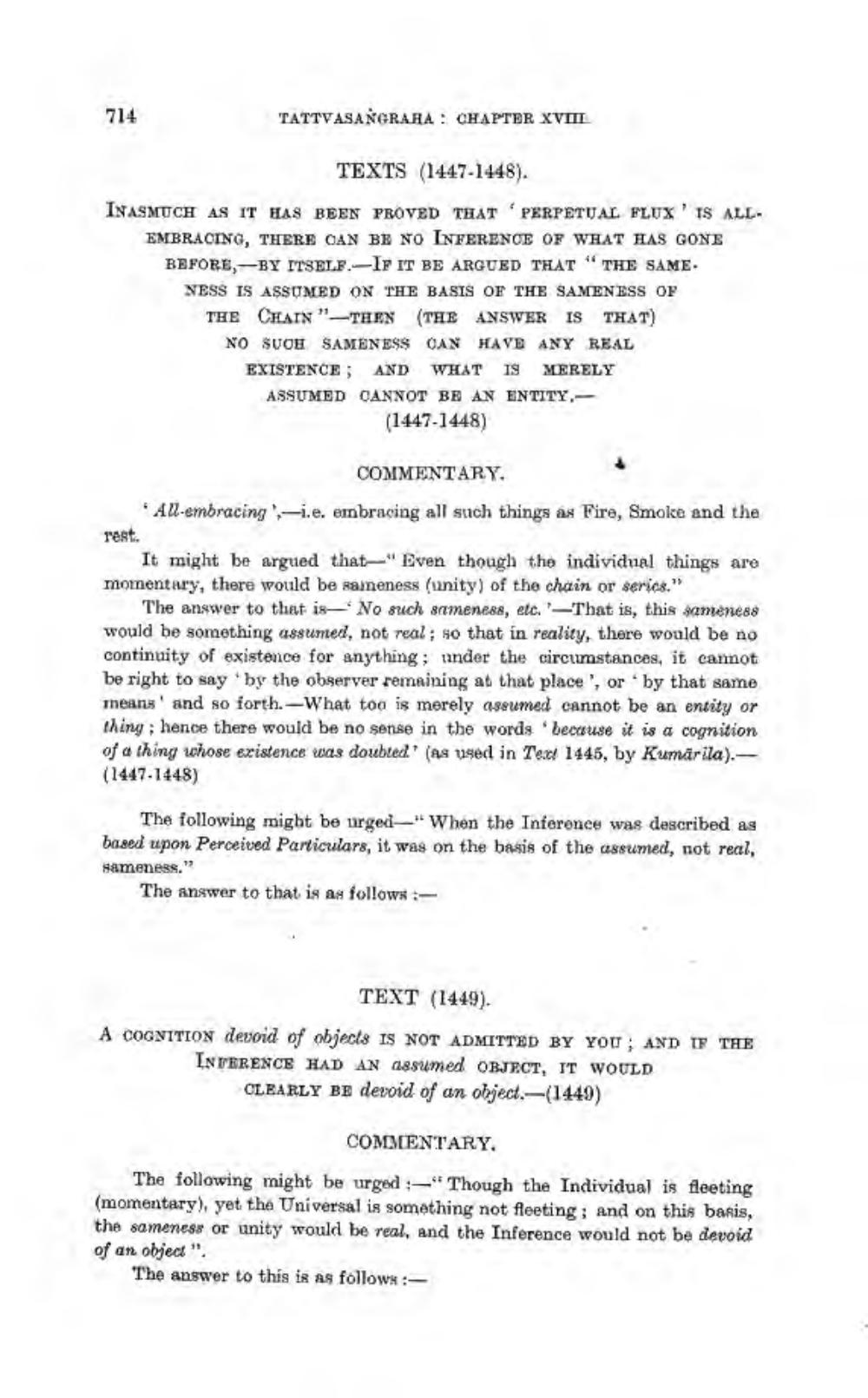________________
714
TATTVASANGRARA : CHAPTER XVIII
TEXTS (1447-1448).
INASMUCH AS IT HAS BEEN PROVED THAT PERPETUAL FLUX' TS ALL
EMBRACING, THERE CAN BE NO INFERENCE OF WHAT HAS GONE BEFORE, --BY ITSELF. IF IT BE ARGUED THAT THE SAME. NESS IS ASSUMED ON THE BASIS OF THE SAMENESS OF THE CHAIN"-THEN (THE ANSWER IS THAT) NO SVOH SAMENESS CAN HAVE ANY REAL EXISTENCE; AND WHAT 19 MERELY ASSUMED CANNOT BE AN ENTITY,--
(1-447-1448)
COMMENTARY * AU-embracing -.e. einbracing all such things as Fire, Smoke and the rest.
It might be argued that "Even though the individual things are momentary, there would be sameness (unity) of the chain or series."
The answer to that is—No such sameness, etc. That is, this sameness would be something assumed, not real; so that in reality, there would be no continuity of existence for anything; under the circumstances, it cannot be right to say by the observer remaining at that place', or by that same means and so forth.-What too is merely assumed cannot be an entity or thing; hence there would be no sense in the words because it is a cognition of a thing whose existence was doubled.' (as used in Teac 1445, by Kumärila).(1447-1448)
The following might be urged When the Inference was described as based upon Perceived Particulars, it was on the basis of the assumed, not real, sameness."
The answer to that is as follows:
TEXT (1449)
A COGNITION devoid of objects IS NOT ADMITTED BY YOU; AND IF THE
INTERENCE HAD AN assumed OBJECT, IT WOULD
CLEARLY BE devoid of an object. -- (1449)
COMMENTARY
The following might be urged "Though the Individual is fleeting (momentary), yet the Universal is something not fleeting; and on this baris, the sameness or unity would be real, and the Inference would not be devoid of an object".
The answer to this is as follows:




